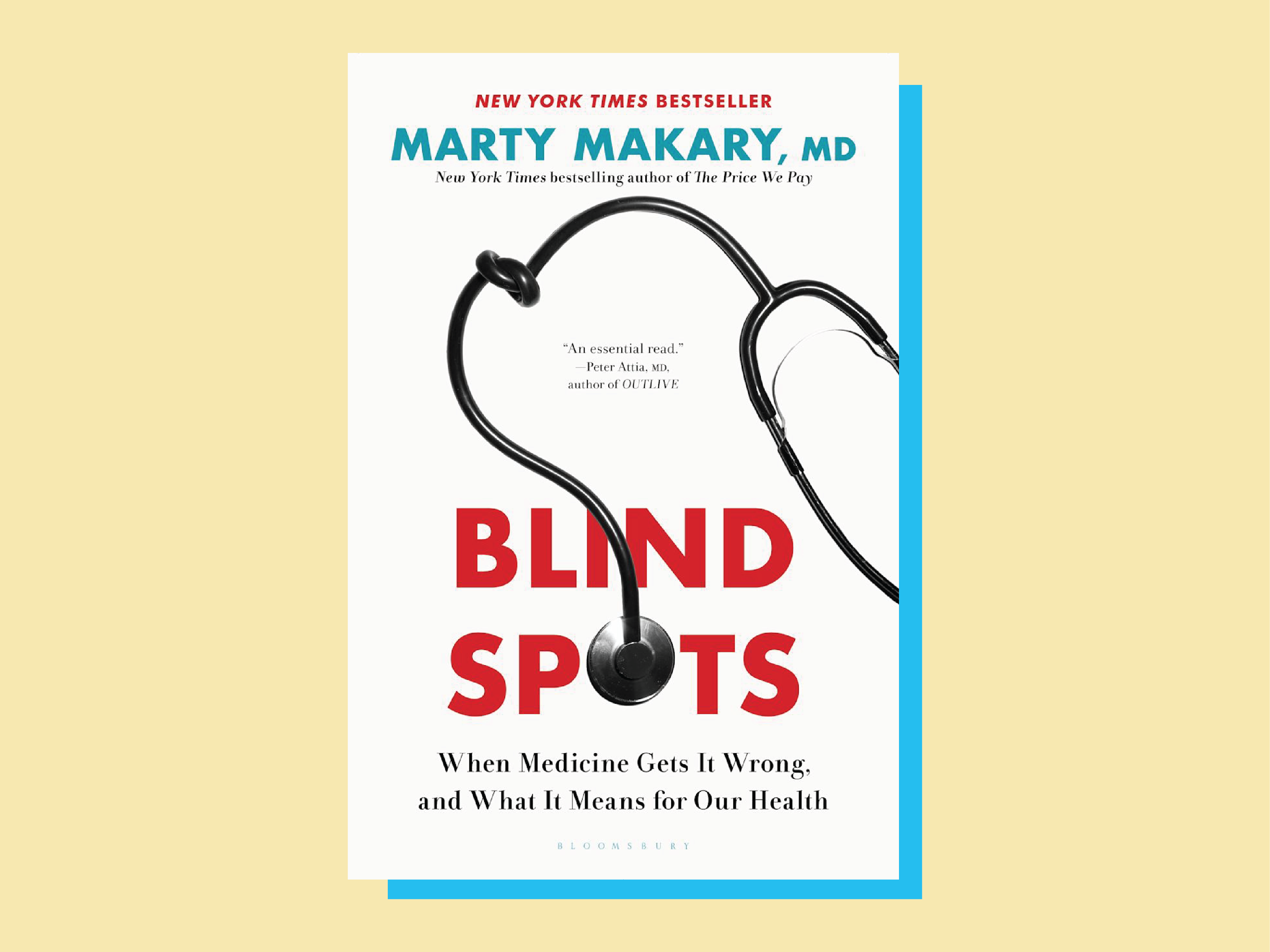It’s not hard to be critical of the U.S. health care system.
Even with broad policy changes over the years, a medical crisis can leave people in crippling debt. And most of the time, when you find yourself at the hospital, the actual cost of everything isn’t exactly displayed like a restaurant menu.
And then there are all the things the medical establishment has actually gotten wrong in recent years.
Dr. Marty Makary, a public health expert at Johns Hopkins University and the chief medical officer at H-E-B, says healthcare’s misconceptions aren’t meant to just underscore mistrust in the system, but encourage you to speak out for your own benefit. He outlined this message in a new book titled “Blind Spots: When Medicine Gets It Wrong and What It Means For Our Health.”
Makary joined Texas Standard to discuss the new book. Listen to the interview above or read the transcript below.
This transcript has been edited lightly for clarity:
Texas Standard: The main theme of your book is groupthink. Can you tell us briefly how it’s affecting health care?
Marty Makary: Well, in medicine, we have groupthink like in any profession, and that is a herd mentality. And what it means is that sometimes we don’t challenge some of that deeply held assumptions that we have in medicine: the food pyramid, how to prevent allergies, how we approach cancer.
And we desperately need some fresh new ideas. We need to harvest the good ideas that live in the blind spots of modern medicine. We need to talk about food as medicine. We need to talk about environmental exposures. We need a fresh approach because the current system has failed us.
Health care for the last 50 years has failed. We have the highest rates of chronic diseases. Half our nation’s kids have obesity or are overweight, a quarter have pre-diabetes or fatty infiltration of their liver. Autism has gone up by 14% every year for the last 23 years. And in my field of pancreatic cancer, cancer rates have doubled in the last two decades.
We’ve got to address the root causes that are driving a lot of our chronic diseases and stop blaming patients. We need to look at food and the environmental exposures that cause diseases, not just play Whac-A-Mole with the late stages of disease when they present to the hospital.
One failure you use as an example is opioids, which are still, of course, plaguing the nation and their addictiveness, which was initially denied. Do you think the medical community learned the right lesson from that crisis?
When we have a small group of oligarchs at the top of medicine making decisions for everybody and they crush dissent, like the doctors who are saying, “no, no, opioids are addictive,” the groupthink took over. And so, we said opioids were not addictive for 30 years. We got that wrong, igniting the modern day opioid epidemic.
And it’s not just opioids. The food pyramid, peanut allergies and so many other topics. We need to have more civil discourse and we need to examine what we’re doing with good scientific evidence. When we use good scientific evidence, we shine as a profession of doctors. When we use the edicts of the opinions of a small group of doctors at the top, we have a lousy track record.
We have some Texas-specific examples in your book, both what’s going well and what’s not in medicine. Can you tell me about the doctor you met in McKinney, Texas?
So in McKinney, Texas, I met a neonatologist named Dr. Chiruvolu, and she is using the latest scientific evidence on childbirth to restore that procedure to its ancient natural ways. And at the same time, having all of the might and science of modern medicine to ensure its safety.
They are doing delayed cord clamping, enabling the baby to get the blood from the mother for a good few minutes after birth. They are maximizing skin-to-skin time, so moms hold babies for hours safely so that they get that connection and warmth. They’re more likely to breastfeed, which is healthy for the baby’s gut health. And the babies are not washed because they have a sort of natural protein coat, so they don’t wash the babies for a few days so the bacteria can grow in and form the healthy microbiome of the baby.
They also avoid unnecessary antibiotics. New research is showing that antibiotics in newborns, while they save lives when they’re necessary, most of the time they’re not necessary and they alter the microbiome. And that can actually cause chronic diseases like obesity and learning disabilities in children.
Well, as a layperson, when we see information about new studies, these can be headline-grabbing. And sometimes it’s a little hard to follow the thread. It seems like studies can be contradictory, and it’s hard really to dig into the facts ourselves.
What is your recommendation to somebody who might be following the latest and feeling like they are themselves playing Whac-A-Mole, trying to keep up with something that maybe seems controversial or contradictory on its face?
It can be hard to navigate because sometimes the media picks up the studies with the attractive headlines, but they’re not really studies-based on good scientific methodology.
And so, a group of us doctors are now going directly to the public to try to educate people about cancer prevention, allergy prevention, and best practices with childbirth to bring the latest scientific research on gut health and the microbiome, the truth about ultra processed foods and these highly engineered ingredients, which are essentially chemicals that the body reacts to with inflammation.
Many of us are now going directly to the public to try to educate people so they can know what is based on science and what is simply a catchy headline.
Well, you talk a lot in your book about hormone replacement therapy, or HRT. I think it sounds rather scary for folks. Maybe folks might be familiar with how it comes to treatments for menopause. How much do we know about it right now? And is it as scary as it sounds?
Hormone replacement therapy is amazing for women after menopause. Replacing your own estrogen and progesterone with what we call hormone replacement results in women living longer and feeling better. They live on average three and a half years longer.
And in addition to the short term benefits of alleviating the symptoms of menopause – the hot flashes, night sweats; there’s over 50 symptoms of menopause – there are long term benefits. It can reduce the rate of heart attacks by 50%. It reduces cognitive decline after menopause by 50-60%. It reduces the risk of Alzheimer’s by 35% in one big study.
But tragically, 50 million women have been denied this incredible therapy because 22 years ago, a doctor from the NIH declared that it causes breast cancer. Even though he did not release the data at the time of his press conference, the media ran with the headlines.
The public believed them. Women flushed their hormone therapy pills down the toilet and we as a medical community believed it as well. These were doctors with great credentials from the NIH. Turns out when we took a close examination at the actual study, there was no statistically significant increase in breast cancer.
In the book “Blind Spots,” I interviewed the doctor who made this famous announcement scaring women. He acknowledged to me that there was no increase in breast cancer mortality in his famous study, and people need to know the truth, because the benefits of hormone therapy are amazing. Most women are great candidates, but you need to start it within several years of menopause in order to get the benefits.













